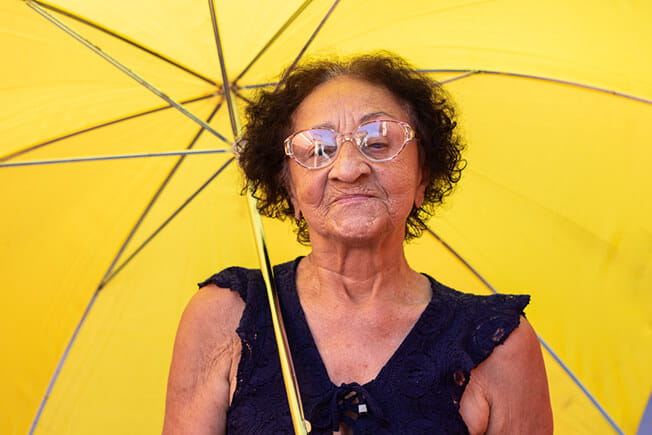Art of Aging: Stay ahead of heat-related illness

When the temperature or humidity goes up, or an air pollution alert is in effect, older adults are at increased risk for heat-related illness, according to the National Institute on Aging (NIH).
"Your body just can't handle the heat and humidity as well as it did 20 or 30 years ago," says Steven Moonblatt, MD, emergency medicine physician at Riddle Hospital, part of Main Line Health, who offers tips to help you successfully and safely navigate in hot weather.
Be aware of medical risk factors
"Chronic medical conditions can change the body's response to heat, and medications such as blood pressure drugs, antihistamines, decongestants, overactive bladder treatments and psychiatric drugs can cause heat intolerance," explains Dr. Moonblatt, who recommends talking to your doctor about heat, your health and the medications you take.
Dress for success
"We regularly see seniors in the Emergency Department wearing layers of clothing because of their air conditioners," says Dr. Moonblatt, "But when they go outside, the layers block the release of body heat. It's important to shed those layers and allow your body to naturally regulate itself."
Take frequent A/C breaks
Take breaks inside with air conditioning as much as possible when it's hot outside. "The library is a great place to go," says Dr. Moonblatt. "Or go to a movie theater, the mall, YMCA or anywhere you can go to cool down for a bit."
Get and stay hydrated
Staying hydrated is essential — In addition to bringing a water bottle, it is very important to drink before you go outside in the sun and avoid alcohol and caffeine. "If your doctor limits your fluid intake, ask what's right for you in hot weather," notes Dr. Moonblatt. And, anyone who will be outside for a long period of time should have sports drinks as well as water to replace salt, potassium and other electrolytes.
Know when to seek help
Seek medical care immediately for signs of heat-related illness such as muscle cramps, headaches, nausea, or vomiting.
Learn more: Hot Weather Safety for Older Adults | National Institute on Aging (nih.gov)
Main Line Health serves patients at hospitals and health centers throughout the western suburbs of Philadelphia. To schedule an appointment with a specialist at Main Line Health, call 1.866.CALL.MLH (225.5654).
 Content you want, delivered to your inbox
Content you want, delivered to your inbox
Want to get the latest health and wellness articles delivered right to your inbox?
Subscribe to the Well Ahead Newsletter.
